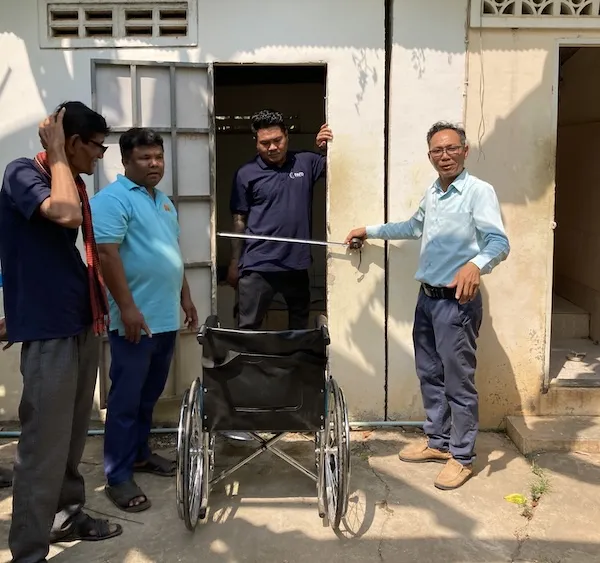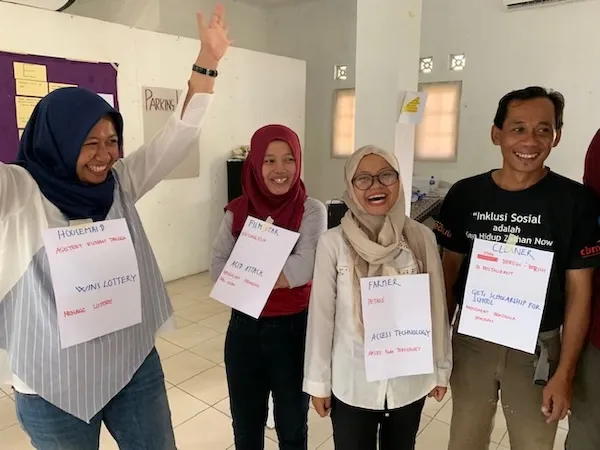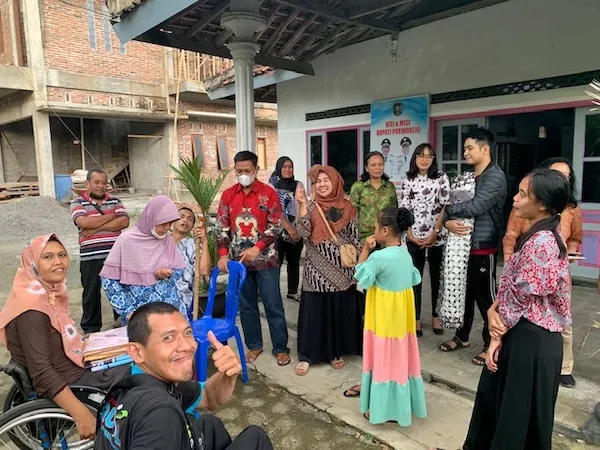Background
Persons with disabilities in rural areas often face systemic barriers to inclusion in community life. These barriers are compounded by poverty, limited access to education, health care, and transportation, and prevailing social stigma. In remote villages, persons with disabilities are frequently invisible in local decision-making processes and excluded from the development initiatives that shape their everyday environment.
Discrimination and a lack of accessible infrastructure mean that basic services — such as health centers, schools, and administrative offices — are often out of reach. This exclusion reinforces cycles of poverty, isolation, and dependence. Community members often lack awareness and skills to engage meaningfully with persons with disabilities or to adapt their approaches to be more inclusive.



What we did
The 3-year project builds on the success and learning of two previous projects that focused on building inclusive business and inclusive villages.
This new intervention will have a different strategy because it will act on needs of people that have not been reached yet. It will actively involve youth and connect them with elderly, disabled people groups (DPOs) and others. It will take advocacy efforts to a higher level. People not reached include those with psychosocial/ mental disabilities, children, women and elderly living in very vulnerable conditions (in the aftermath of the Covid-19 pandemic).
People with mental disabilities are often misunderstood and misidentified. Besides, more people are living in impoverished conditions, they lack access to healthcare and cannot engage in productive activities and vice versa.
Outcomes of the project :
- Improved access to basic health services,
- More productive businesses
The project will benefit people with disabilities and strengthen youth groups that support marginalized communities. It will also enhance the commitment and capacity of local government officials and our partner organization, PRY, to implement and promote a successful inclusive village model in 25 villages in the Purworejo District.